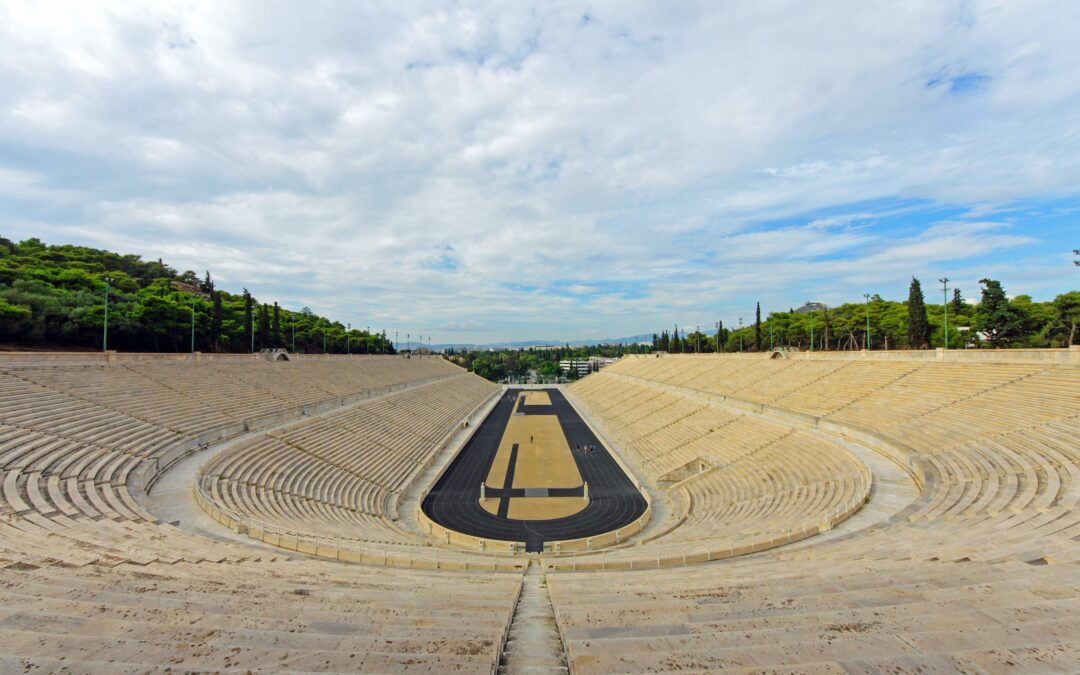Want to know the significance of the Athens Marathon? The Athens Marathon is more than just a race; it’s a cultural and historical celebration of over 2,500 years. Known as the original marathon route, it symbolizes endurance, bravery, and a deep legacy. Running from Marathon to Athens, the event honors ancient Greek history and has evolved into a global symbol of human spirit and resilience. Each year, thousands gather in Athens to test their physical limits and participate in a tradition that connects them to a remarkable past.
The Legend of Pheidippides: The Marathon’s Origin
The historical significance of the Athens Marathon begins with the legendary Greek soldier Pheidippides. In 490 BCE, Pheidippides was reportedly dispatched from the battlefield at Marathon to Athens to announce the Greeks’ victory over the Persian forces. This momentous news, vital to Athens, was only delivered thanks to Pheidippides’ unyielding determination. He ran approximately 40 kilometers (about 25 miles) without stopping. Upon reaching Athens, Pheidippides is said to have proclaimed, “We have won,” before collapsing and dying from exhaustion.
The First Modern Olympic Marathon
The story of Pheidippides’ sacrifice inspired the creation of the modern marathon race, which debuted in the first modern Olympic Games held in Athens in 1896. Baron Pierre de Coubertin, the founder of the International Olympic Committee, wanted a race to honor ancient Greece and chose this legendary run as a fitting tribute.
Also read: The Most Popular Marathons Around the Globe: A Runner’s Guide
In that first race, a Greek water carrier named Spiridon Louis won. He became an instant national hero. Louis’ victory represented a personal achievement and a renewed sense of Greek pride and identity. His accomplishment was especially meaningful since Greece had only recently gained independence from Ottoman rule. His win sparked national enthusiasm, and the race has since become a key symbol of Greece’s ancient heritage and resilience.
Today, the Athens Marathon is celebrated as the “Authentic Marathon”. It has retained its unique status among global marathons due to its historical ties and the route itself, which closely follows Pheidippides’ legendary path. Every participant in the Athens Marathon thus symbolically re-enacts a moment in history, experiencing both the legacy and challenge of Pheidippides’ original journey.
The Athens Marathon Route: A Historical Experience
The Athens Marathon’s route covers some of Greece’s most storied terrain, starting from the town of Marathon and ending in the ancient Panathenaic Stadium in Athens. This marble stadium is a masterpiece, built in 330 BCE and restored for the 1896 Olympics. It’s one of the few stadiums made entirely of marble, adding another layer of historic significance to the race’s ending point.
Also read: How Long Should It Take a Beginner to Run a Marathon?
The route allows runners to pass through towns, villages, and landscapes that have been part of Greek history for millennia. Running the Athens marathon also offers a journey through ancient Greek culture and mythology. The course is notoriously challenging, with hills and tough terrain, but this difficulty only enhances the marathon’s symbolic power. Each step retraces the supposed footsteps of Pheidippides, creating a unique connection between ancient heroism and modern athleticism.
Cultural Significance and the Global Marathon Movement
The Athens Marathon’s unique origin has inspired the global popularity of the marathon as an athletic challenge. Today, marathon races are celebrated worldwide, from Boston to Berlin to Tokyo, but the Athens Marathon holds a unique place as the race that started it all.
A Symbol of Endurance and Personal Achievement
The marathon has come to symbolize the resilience of the human spirit. Just as Pheidippides pushed himself to deliver a message of victory, today’s marathon runners push themselves beyond their physical limits. For participants, completing the Athens Marathon—or any marathon—is a testament to overcoming challenges.
The Athens Marathon continues to reflect both the historical tale of Pheidippides and the personal journeys of thousands of runners. Each person who completes the race is part of a lineage that extends back to ancient Greece. Running a marathon in Athens will help you connect past and present in a shared act of perseverance and determination.
Also read: How to Structure Your Routine in the Days Leading Up to the Marathon
The Athens Marathon Today: A Living Legacy
As one of the world’s most celebrated marathons, the Athens Marathon has grown into a modern tribute to Greek heritage. The annual event offers races of various lengths, making it accessible to athletes of different abilities and interests. This inclusivity reflects the evolution of the marathon from an elite competition to an event that celebrates the potential in everyone.
Runners who complete the Athens Marathon embody a timeless bond with Pheidippides’ and his legendary journey. Every participant can embrace the ancient ideals of courage, endurance, and unity. This race is not only a test of physical endurance but a cultural experience, as it bridges history with modern athleticism.
Conclusion: The Enduring Legacy of the Athens Marathon
In a world filled with marathon races, the Athens Marathon stands as a unique connection to the ancient past. Each year, runners retrace the steps of a legendary hero, joining an extraordinary tradition and carrying forward the timeless ideals of endurance, resilience, and unity.

